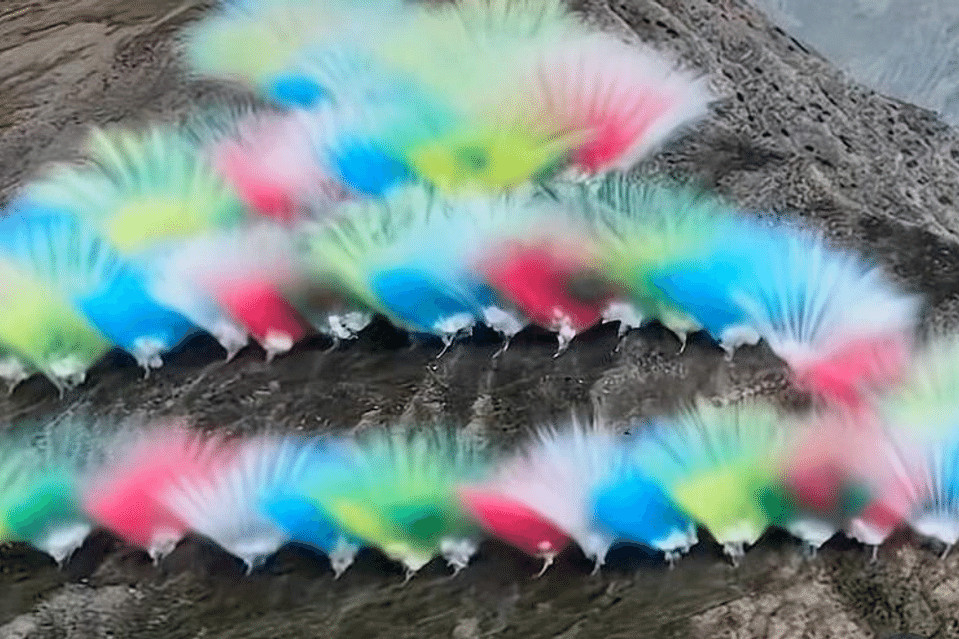Arc'teryx and Cai Guoqiang Face Backlash Over Tibet Fireworks Stunt
Outdoor gear brand Arc'teryx and Chinese artist Cai Guoqiang are facing significant criticism after staging a fireworks display on a mountain in Tibet. The marketing stunt has sparked intense backlash due to concerns about potential long-term environmental damage and possible violations of environmental protection laws.
The Incident and Immediate Response
The incident, involving dragon-shaped fireworks designed by Cai Guoqiang (the artist behind the 2008 Beijing Olympics opening ceremony pyrotechnics), quickly became a public relations crisis for Arc'teryx, a Canadian brand owned by Chinese interests. A video of the event, which took place more than 4,500m above sea level, was posted online on September 19, prompting swift official apologies. However, questions remain about how approval was granted for such an activity in an ecologically sensitive area.
Tibet's Environmental Protection Status
Tibet, an autonomous region with substantial natural resources, is designated as a restricted development area under China’s national planning guidelines. This designation mandates that ecological protection be prioritized over economic activities. The Arc'teryx incident highlights potential issues with the competency of lower-level government officials in assessing the environmental impact of such events. Initial approval was reportedly given at the county level, below the municipal level.
Conflicting Explanations and Growing Criticism
On September 20, an official from the Gyantse County branch of the Shigatse Municipal Ecological and Environment Bureau claimed the fireworks utilized biodegradable materials and therefore did not require a full environmental assessment, with township, village and county-level approvals deemed sufficient. However, this explanation did not quell the growing backlash. Arc'teryx, a status symbol in China, faced accusations of hypocrisy, given its parent company Amer Sports's stated commitment to minimizing environmental impact. Amer Sports was acquired by Chinese sportswear conglomerate Anta Sports in 2019.
Investigation and Further Developments
The Shigatse municipal party committee and government, under which Gyantse County falls, announced on September 21 the establishment of an investigation team to examine the incident. They stated the matter would be handled in accordance with the law. The following day, a Shigatse Municipal Ecology and Environment Bureau official revealed that the fireworks display was not filed with or reported to municipal-level authorities prior to its execution. State broadcaster CCTV reported on September 22 that the 52-second display, involving 1,050 pots of fireworks, occurred in an uninhabited area outside an ecological protection zone, although still subject to environmental protection laws.
Expert Perspectives on Environmental Impact and Governance
Assistant Professor Stefanie Kam of the S. Rajaratnam School of International Studies in Singapore, pointed to the Qinghai-Tibet Plateau ecological conservation law, passed and enacted in 2023. She also referenced a March 2025 government White Paper emphasizing the ecological conservation of Tibet as critical to the "survival and development of the Chinese nation." Prof. Kam noted that despite such laws, effective implementation at the local level takes time, and local authorities may lack the expertise and strategic foresight to fully grasp ecological law technicalities. The incident also underscores growing social awareness of environmental rights in China, driven partly by increasing tourism and appreciation for environmental conservation.
Environmental Concerns and Potential Long-Term Effects
Experts interviewed by Chinese media emphasized that the biodegradability of fireworks materials is contingent upon environmental factors. Colder, high-altitude regions hinder the breakdown of materials into natural substances. The noise pollution caused by the fireworks also poses a threat to local wildlife. Environmental lawyer Yang Yang stated that the fireworks display violated the principle of “ecological protection as first priority” under the Qinghai-Tibet Plateau Ecological Protection Law. She questioned the authorities' approval process, highlighting the ecological fragility of the Himalayas and the slow vegetation growth in high-altitude areas.
Potential Soil and Water Contamination
Yang Yang added that ecological and environmental protection is a specialized field, potentially exceeding the expertise of local environmental bureaus to fully comprehend the long-term consequences. Residue from fireworks combustion can gradually settle onto the ground or into water bodies. The presence of harmful chemicals or heavy metal particles poses a risk of gradual infiltration into the soil or water systems.
 Visit the website
Visit the website







